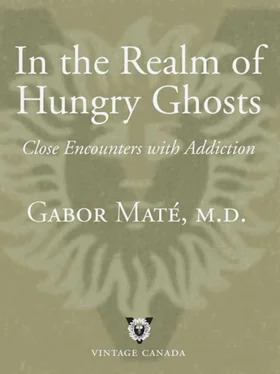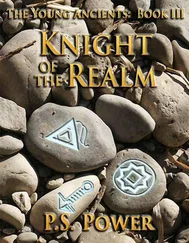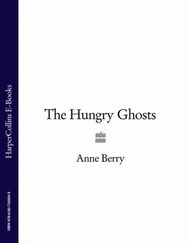Conrad Black is formally known by his British peerage title, Lord Black of Crossharbour—an honorific he craved and pursued. His high ambition was to hobnob with the elite of conservative political and business circles on both sides of the Atlantic, courting figures like Margaret Thatcher and Henry Kissinger as acquaintances. Following a spectacular rise to business and social prominence, he is now a convicted felon. In the words of an internal investigation at one of the companies he directed, his regime was one of “corporate kleptocracy.” He has been described as unscrupulous, vain, arrogant and power hungry, with an insatiable appetite for cash. According to all of his biographers he has been relentlessly single-minded in his quest for power, status, financial gain and haut monde respectability. He is also blessed, or cursed, with a sharp intellect and an even sharper tongue, ever ready to cut down anyone who crosses him. The British magazine New Statesman praised one of the Black biographies as “a rounded portrait of a monster, albeit a self-conscious, even ironic monster.”
All humans have the potential to behave monstrously or virtuously. The key question is how a child with great potential becomes an adult driven to engineer for himself such a dramatic rise and an even more dramatic descent. “Conrad has a lot going for him,” Globe and Mail columnist Rex Murphy once wrote, referring to Black’s ample blessings of natural abilities and social advantages. “What is perplexing is why a man so rich—in both senses of the term—would have chosen to go the way he has.” Why would such a man define his ambitions “mainly in terms of that hollow word more. More money. More houses. More famous friends. Just more.” I believe addiction best accounts for Conrad Black’s otherwise perplexing life.
The addict is never satisfied. His spiritual and emotional condition is one of impoverishment, no matter how much he achieves, acquires or possesses. In the hungry-ghost mode, we can never be satiated. Scruples vanish in face of the addictive “need”—hence, the ruthlessness. Loyalty, integrity and honour lose meaning.
Black’s wife, Barbara Amiel Black, has been his partner in insatiability. Formerly addicted to codeine, by the side of her wealthy husband Amiel became attached to luxury and limitless acquisition. Her closets reportedly house a collection of fashion shoes worth several hundred thousand dollars, rivalling Imelda Marcos’s footwear storehouse, alongside “boxes of unopened panty hose, filed by color and make.” “I have an extravagance that knows no bounds,” Barbara Amiel told Vogue magazine in 2002—a self-parodying confession, perhaps, but accurate.
Black’s childhood was the perfect crucible for an addict’s mentality. According to his biographers the young Conrad was never close to his mother. In his autobiography, the warmest acknowledgment the hyper-eloquent Black could conjure up was that she was a “convivial and altogether virtuous person…as affable as he [Black’s father] was prone to be aloof.” It was the reclusive, often-absent, depressive and heavy-drinking father that Conrad idolized. The bookish, awkward, sensitive, intelligent child did not fit in with the easygoing jock camaraderie of the extended Black clan, and his parents acknowledged their inability to understand or relate to their precocious son. “We have this strange child—we don’t know what to do with him,” they told family friends. 12
The young Black was abused, not at home, but at Toronto’s Upper Canada College, the institution where the male scions of society’s upper crust were educated in the ways of the world. Beatings by the instructors were indiscriminate and cruel. Black has described one thrashing at the hands of a teacher, using a heavy cane, as “a fierce and savage assault” that left him lacerated to a pulp. As a child and since then as well, Black has repeatedly likened UCC to a Nazi concentration camp. He referred to some of his teachers as Gauleiters —Nazi leaders in the Hitler mode, and to fellow students as Sonderkommandos —prisoners who collaborated with the SS guards. He had no one to turn to. So emotionally distant were his parents that, in his words, “they never really understood what I was so upset about in my school years.”
In the recollection of a childhood friend the pre-adolescent Black exhibited behaviours that would lead most parents to request professional intervention: “he kicked holes in walls when he got upset as a child, threw knives around.” At age twenty-five Conrad suffered bouts of severe anxiety, hyperventilation, insomnia and claustrophobia. All the ingredients for addiction were in the mix by the time he became an adult: parental non-attunement, psychological distress, impaired impulse control and emotional pain.
Under different social and economic circumstances, Conrad might well have sought solace in alcohol or hard drugs. Born into a world of privilege, however, and gifted with charisma, it was natural that power, wealth, status and “respect”—no matter how he acquired them—became the objects of his addictive pursuits.
Addicts respond with rage toward anyone who tries to deprive them of their drug, a rage that’s fuelled by intense frustration. I have witnessed that rage in opiate seekers and have experienced it personally when, for example, my wife tried to stand in the way of my compulsive compact disc buying. Black’s drugs of choice being power and status —social, economic, political and intellectual—we can understand the venom he directs at people who thwart him. Business associates who critiqued Black’s operations as self-serving were, in his words, “corporate governance terrorists.” The prosecutors conducting the legal case against him in Chicago were “Nazis.” When historian Ramsay Cook gave Conrad’s first book an unfavourable review, he called the distinguished academic “a slanted, supercilious little twit,” possessing “the professional ethics of a cockroach.” After the Catholic bishop of Calgary gave moral support to striking employees at the Black-owned Calgary Herald, the media mogul excoriated him as “a jumped-up little twerp of a bishop” and a “prime candidate for exorcism.”
That sneering word “little” may articulate precisely how Conrad feels about himself at the core of his psyche—our sneers always tell us who we feel we are. A powerful person’s self-esteem may appear to be high, but it’s a hollow shell if it’s based on externals, on the ability to impress or intimidate others. It’s what psychologist Gordon Neufeld calls conditional or contingent self-esteem: it depends on circumstances. The greater the void within, the more urgent the drive to be noticed and to be “important,” and the more compulsive the need for status. By contrast, genuine self-esteem needs nothing from the outside. It doesn’t say, “I’m worthwhile because I’ve done this, that or the other.” It says, “I’m worthwhile whether or not I’ve done this, that or the other. I don’t need to be right or to wield power, to amass wealth or achievements.”
Self-esteem is not what the individual consciously thinks about himself; it’s the quality of self-respect manifested in his emotional life and behaviours. By no means are a superficially positive self-image and true self-esteem necessarily identical. In many cases they are not even compatible. People with a grandiose and inflated view of themselves are missing true self-esteem at the core. To compensate for a deep sense of worthlessness, they develop a craving for power and an exaggerated self-evaluation that may itself become a focus of addiction, as it appears to have done for the person who needed to become “Lord” Black. His bluster and pomposity, derided by some and resented by many, are compensations for what he lacks in self-acceptance, and, deeper, in spiritual fulfillment. The absurdist Austrian author Robert Musil wrote of one of his characters, “the whole ideology of the great man he lived by was only an emergency substitute for something that was missing.” 13It’s a form of grandiosity I well know from within.
Читать дальше












